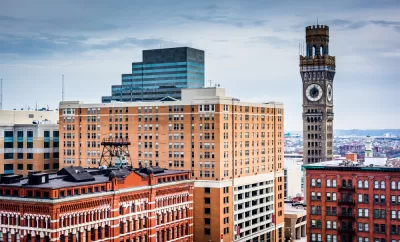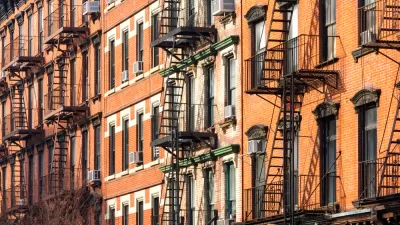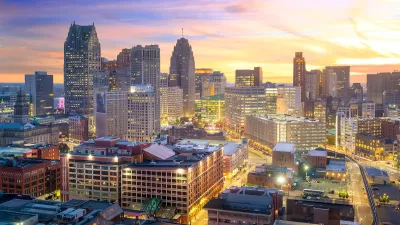A grassroots housing plan in Baltimore would keep control over neighborhood revitalization, and its benefits, in communities.

The "20/20 Vision for Fair Development" plan calls for the city to commit to an annual investment of $40 million. Half would go toward demolishing vacant and blighted properties; the other half would be a long-term investment in plans to rebuild permanently affordable housing through community land trusts.
Community land trusts, or CLTs, are nonprofits that establish communally owned property under a democratic governance structure. Baltimore Housing Roundtable, the coalition behind the proposal, says joint land ownership offers the possibility of neighborhood revitalization, and housing, without the risk of displacement:
"When these community controls are leveraged against market forces, neighborhoods can ensure a communally managed recycling of ownership, and avoid the frenzied churn of renters and developers commonly associated with boom-bust speculation and gentrification."
A city board recently took a different tack, approving a $600-million urban revitalization program from the governor that will incentivize new development on demolished properties.
"Project C.O.R.E." is the type of plan to which CLTs are proposed as an alternative. Advocates say the strategy of attracting private developers with little community accountability can be difficult to distinguish from an attempt to attract a new community to fill private developments. A January report from the Housing Roundtable reads:
"When significant numbers of people are constantly threatened with homelessness and the city can offer only trickle down development that, if successful, will further increase housing costs, the only reasonable conclusion is that involuntary displacement of a certain class of residents is a foreseeable part of the city’s plan and policy."
The Nation delves deeper into competing visions for Baltimore, and the possibilities for revitalization without gentrification.
FULL STORY: Can Neighborhoods Be Revitalized Without Gentrifying Them?

Planetizen Federal Action Tracker
A weekly monitor of how Trump’s orders and actions are impacting planners and planning in America.

Chicago’s Ghost Rails
Just beneath the surface of the modern city lie the remnants of its expansive early 20th-century streetcar system.

San Antonio and Austin are Fusing Into one Massive Megaregion
The region spanning the two central Texas cities is growing fast, posing challenges for local infrastructure and water supplies.

Since Zion's Shuttles Went Electric “The Smog is Gone”
Visitors to Zion National Park can enjoy the canyon via the nation’s first fully electric park shuttle system.

Trump Distributing DOT Safety Funds at 1/10 Rate of Biden
Funds for Safe Streets and other transportation safety and equity programs are being held up by administrative reviews and conflicts with the Trump administration’s priorities.

German Cities Subsidize Taxis for Women Amid Wave of Violence
Free or low-cost taxi rides can help women navigate cities more safely, but critics say the programs don't address the root causes of violence against women.
Urban Design for Planners 1: Software Tools
This six-course series explores essential urban design concepts using open source software and equips planners with the tools they need to participate fully in the urban design process.
Planning for Universal Design
Learn the tools for implementing Universal Design in planning regulations.
planning NEXT
Appalachian Highlands Housing Partners
Mpact (founded as Rail~Volution)
City of Camden Redevelopment Agency
City of Astoria
City of Portland
City of Laramie





























